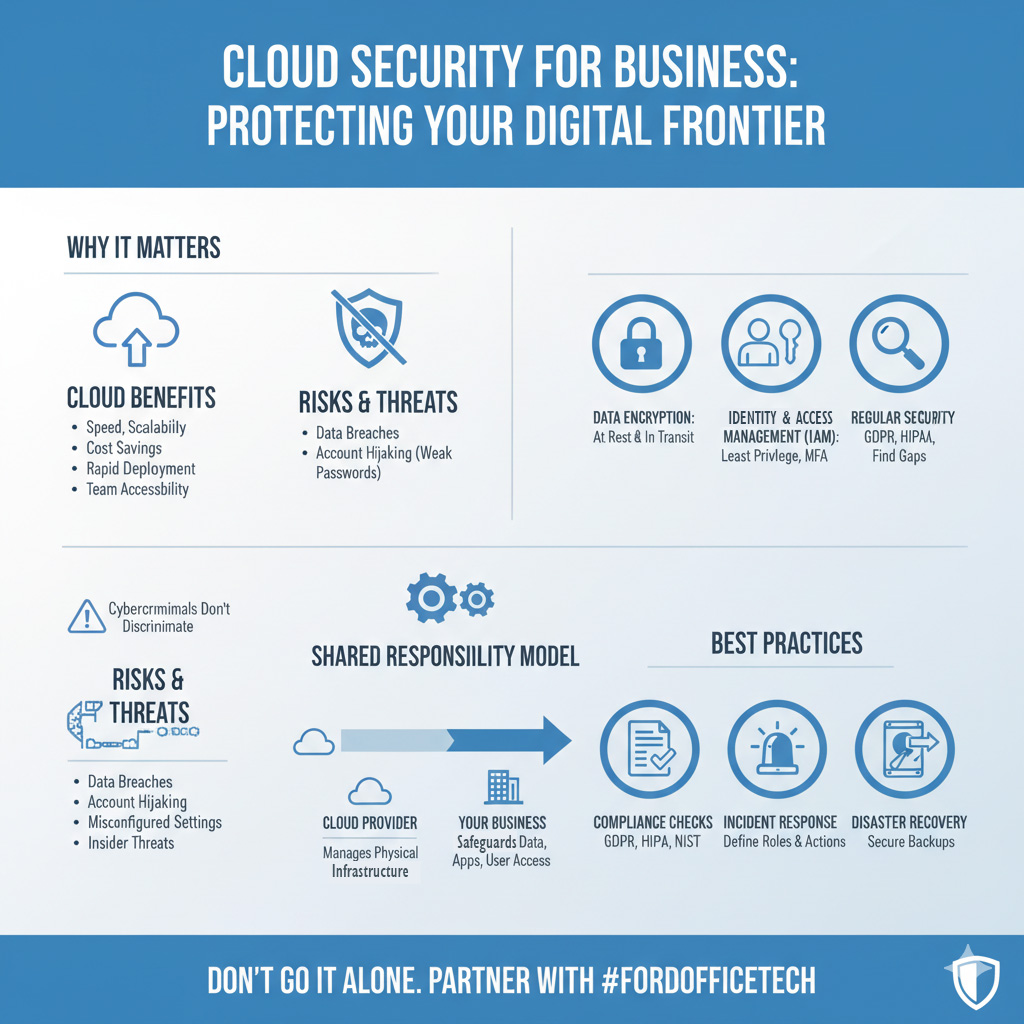Businesses adopted the cloud for speed, scalability, and cost savings. Over time, it became indispensable due to its flexibility, rapid deployment, and team accessibility. But with the benefits come serious risks. A single wrong click or one corrupted file can expose vulnerabilities—and attackers are constantly looking for an entry point.
The truth is simple: cybercriminals don’t discriminate. Whether you’re a small startup or a global enterprise, if your cloud environment provides easy access, someone will take advantage. That’s why cloud security is no longer optional; it’s essential.
Common Cloud Security Threats
Even with a reputable provider, your data isn’t automatically secure. Consider these risks:
- Data breaches – Poorly secured cloud storage can leak sensitive customer or financial information.
- Account hijacking – Weak or reused passwords open the door for attackers to impersonate users and infiltrate systems.
- Misconfigured settings – A single overlooked setting can expose your infrastructure to public access.
- Insider threats – Employees may unintentionally compromise access, download malware, or share restricted files.
Each of these risks has the potential to disrupt operations, harm your reputation, and create costly legal consequences.
The Shared Responsibility Model
One of the most misunderstood aspects of cloud security is the concept of the shared responsibility model. While your provider manages the physical infrastructure, you remain responsible for safeguarding data, applications, and user access. Assuming otherwise leaves your organization vulnerable.
Protecting sensitive data requires proactive policies, monitoring, and controls. With hybrid work environments and remote access now the norm, cloud security must be an ongoing priority—not a one-time setup.
Best Practices for Cloud Security
To strengthen your security posture, businesses should implement fundamental safeguards:
- Data encryption – Protect data both at rest and in transit to ensure it’s unreadable if intercepted.
- Identity and access management (IAM) – Limit user permissions to only what’s necessary. Utilize multi-factor authentication and regularly review access permissions.
- Regular security audits – Test your environment frequently to uncover gaps before attackers do.
- Compliance checks – Stay aligned with regulations like GDPR, HIPAA, or industry-specific standards (NIST framework is a helpful guide).
- Incident response planning – Define roles, responsibilities, and actions to respond quickly to a breach.
- Disaster recovery – Maintain secure backups to minimize downtime if your cloud provider or systems are compromised.
These practices aren’t “nice-to-haves.” They’re the baseline requirements for businesses that want to leverage the cloud securely while protecting uptime, customer trust, and reputation.
You Don’t Have to Do It Alone
Cloud security isn’t a checkbox—it’s an evolving process. From encryption and compliance to monitoring and recovery, every step requires vigilance and expertise.
If you’re unsure where your vulnerabilities lie, partnering with a trusted team ensures you don’t have to navigate these challenges alone. Together, we can identify risks, fill security gaps, and develop a cloud security strategy tailored to your business needs.
The cloud gives your business speed and flexibility, but only if you can trust it. Now is the time to ensure your security keeps pace.
For more information on managed security services, what they are, and what’s included, read Managed Security Services: What Are They?
Give us a call at 800.633.3673 or email info@fordtech.com today to further the discussion and ensure that your cloud security is working for you.

